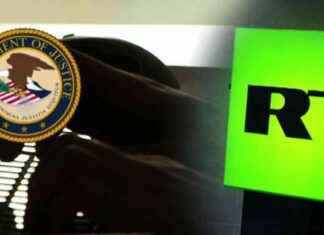Anura Dissanayake: A Potential Marxist President of Sri Lanka
In a surprising turn of events, Anura Kumara Dissanayake, a 55-year-old Sri Lankan politician, has emerged as a top contender for the country’s presidency. Despite not being in government and leading a political alliance with only three seats in parliament, Dissanayake has garnered significant attention and support, even from regional superpower India.
A Rising Political Force in Sri Lanka
Dissanayake’s political journey took a significant turn in 2022 when the country’s economy collapsed, leading to widespread shortages of essential goods and skyrocketing inflation. This crisis sparked a mass protest movement known as the Aragalaya, which eventually led to the resignation of then-President Gotabaya Rajapaksa and his brother Mahinda. The power vacuum created by their departure paved the way for Dissanayake and the Janatha Vimukthi Peramuna (JVP) to advocate for social justice and fight against corruption, gaining traction and support from disillusioned citizens.
Dissanayake’s Leadership and Vision
Born in a rural middle-class family, Dissanayake has been involved with the JVP since his school days and became a member of parliament in 2000. As the leader of the JVP since 2014, he has worked to reimagine the party’s image and distance it from its violent past, including failed Marxist-inspired insurrections in the 1970s and 1980s. Despite the party’s history of violence and bloodshed, Dissanayake has sought to build a broad coalition of supporters, including intellectuals, artists, retired police and military personnel, and trade unions.
A Shift in Economic Policy
As Sri Lanka grapples with economic challenges, Dissanayake has advocated for a pro-trade approach focused on simplifying the tariff structure, improving the business environment, and ending corruption. While he has expressed a commitment to staying within the current IMF program, he has also hinted at renegotiating it to lessen the economic burden on ordinary Sri Lankans. This shift in economic policy represents a departure from his traditional socialist stance and highlights his willingness to adapt to the country’s changing needs.
Challenges and Controversies
Despite his growing popularity and support, Dissanayake faces challenges and controversies, particularly regarding the JVP’s troubled past with the Tamil community and India’s intervention in Sri Lanka. The JVP’s opposition to Tamil separatism and its support for the Rajapaksa government’s war against the Tamil Tigers have raised concerns about accountability for alleged war crimes committed during the civil war. Additionally, the party’s historical association with Sinhala Buddhist ideology and its rhetoric reflecting the concerns of the majority community have sparked criticism and accusations of racism.
Looking Ahead to the Presidential Election
As Sri Lanka prepares for the upcoming presidential election on September 21, the country’s economic recovery and future stability hang in the balance. Dissanayake’s candidacy offers a unique vision for addressing the country’s challenges, from corruption and social justice to economic reform and reconciliation. Whether he can deliver on these promises and gain the trust of voters remains to be seen, but his rise as a potential Marxist president of Sri Lanka signals a shifting political landscape in the Indian Ocean island nation.



























